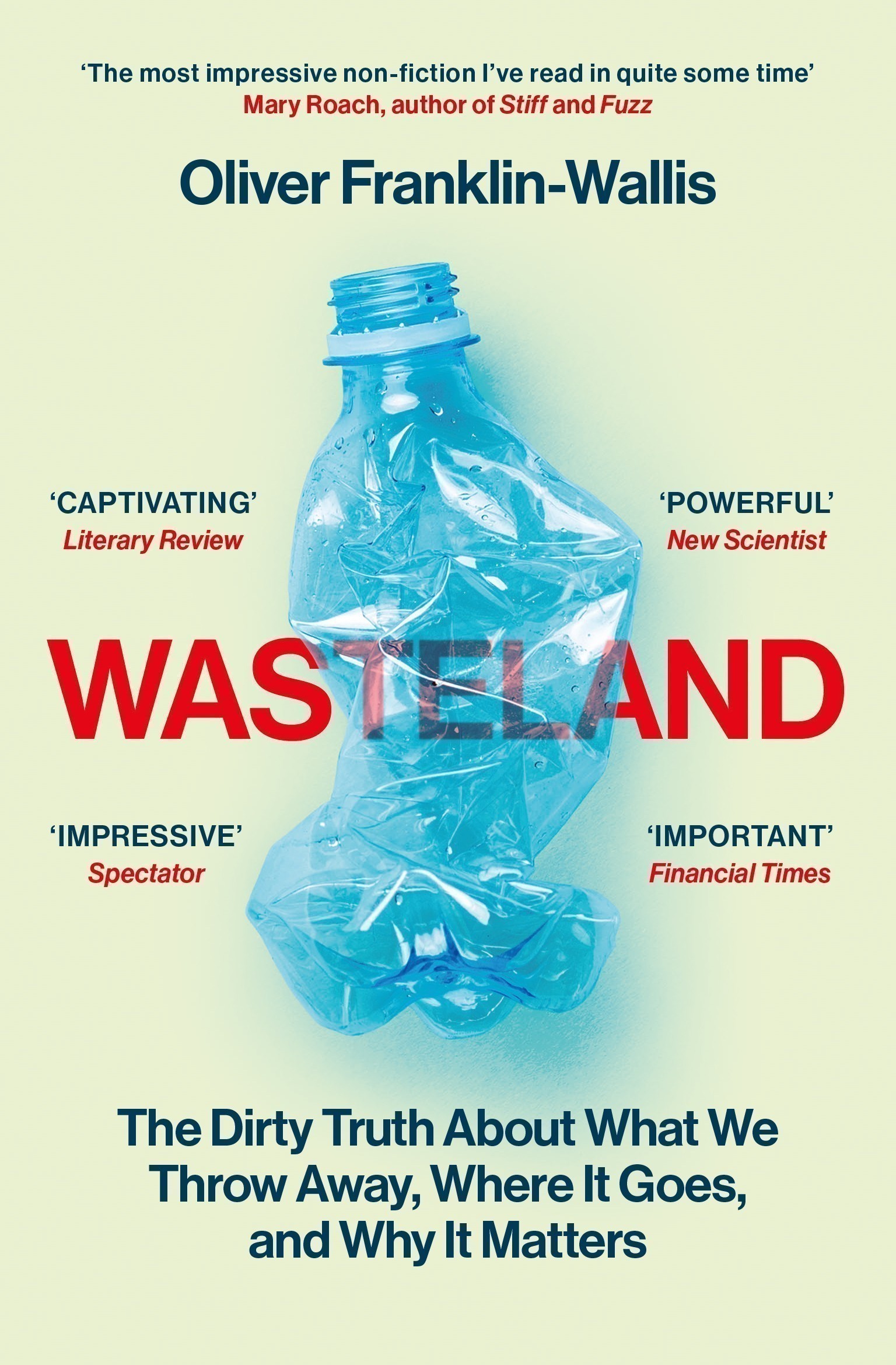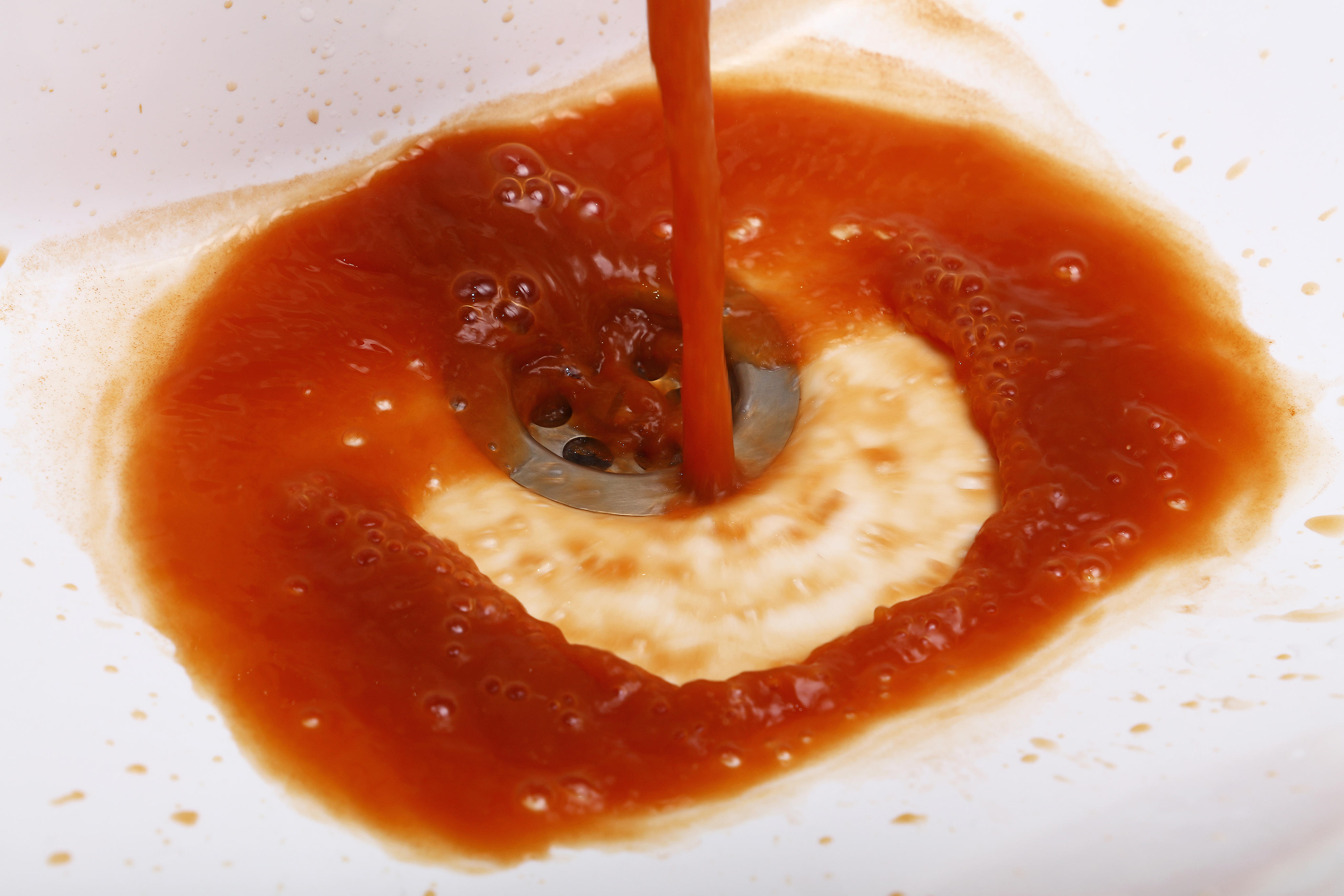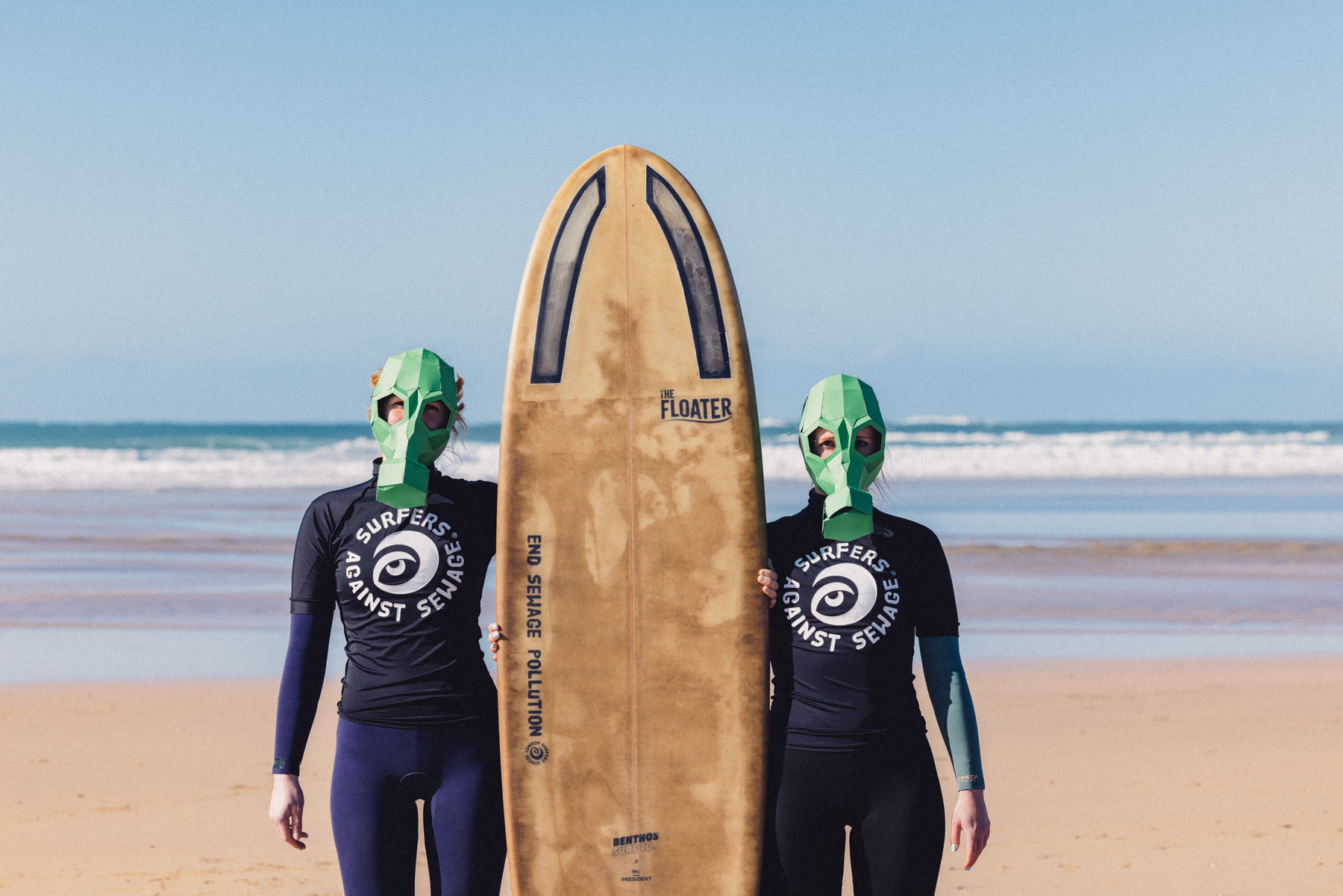Wasteland: The dirty truth about what we throw away and where it goes
When we throw things ‘away’, what does that actually mean? In his highly acclaimed book Wasteland - which was published in paperback in April - journalist Oliver Franklin-Wallis takes us on an eye-opening journey through the global waste industry.
The Reading Room
Welcome to our Reading Room. Dive into a deeper conversation and find leads for your reading list with our collection of extracts from new and upcoming books - by writers you know, and writers you should get to know.

Wasteland
Oliver Franklin-Wallis
Waste has always attracted crime. Rubbish is in many ways a perfect front: it commands substantial profits, requires only the barest untrained labour, and naturally deters all but the closest scrutiny. (No one wants to be crawling around inside garbage trucks looking for evidence of wrongdoing.) In the United States, the mafia controlled the waste trade up and down the East Coast for decades: as far back as the 1950s, it was an open secret that private garbage collection was used as fronts for Italian-American crime families. (There’s a reason Tony Soprano worked in waste management.) Private garbage collectors run by the mob would charge extortionate rates, racking up hundreds of millions of dollars a year in profit. Any attempts to upset the garbage racket was met with warnings, beatings – and even murder. As late as the 1990s, when corporate waste giants such as Waste Management Inc. started to buy up waste businesses in America, the East Coast was considered off limits. In 1992, a man attempting to set up a new waste collection business in New York opened his door one morning to find the severed head of a German shepherd on his doorstep. In its mouth was a note: ‘Welcome To New York’.*
Similar tales abound. In Japan, the waste business has been exploited by the Yakuza; in Honduras, landfills are allegedly used as a front by the notorious central American gang MS-13. In Italy, the capo dei capo of waste crime, rubbish is synonymous with the mafia. In the 1980s, Italian gangs began importing waste from countries as far as Germany and Australia, and exporting it to be dumped overseas in poorer countries such as Ghana and Egypt. The notorious Calabrian mafia, the ’Ndrangheta, spent many years loading ships full of illegal toxic waste, including radioactive waste from hospitals, and scuppering them off the coasts of Italy and North Africa. In Campania, the region around Naples, the Camorra mafia buried more than 10 million tonnes of toxic waste across an estimated 2,000 illegal dumpsites; the dumping is thought to have caused such a large spike in cancer cases that the region has become known as the ‘Triangle of Death.’ (‘We’re polluting our own house and our own land,’ one mobster supposedly said to another. ‘What are we going to drink?’ The reply? ‘You idiot. We’ll drink mineral water.’)
In the UK, waste crimes are so commonplace that in 2021 the Environment Agency and the police established a dedicated Joint Unit for Waste Crime (JUWC). Since 2013, the government has intercepted up to 500 illegal waste shipments annually, and currently track around 1.3 million cases of illegal dumping, or ‘fly-tipping’, every year. Among 60 organised criminal gangs being monitored for waste crimes, the JUWC has said, 70 per cent were involved in money laundering. At least one criminal organisation exporting waste from the UK to Turkey reportedly used the shipments to smuggle cannabis, cocaine, methamphetamine and steroids, on the basis that cus- toms officials wouldn’t look too closely at rubbish.
Today, waste management is a corporate business, controlled by a handful of large, publicly listed multinational corporations: Veolia, Biffa and SUEZ in the UK; Waste Management Inc. and Republic Services in the United States. Despite its more respectable face, Big Waste has not been without its own legal troubles. In the US, waste companies have faced charges of antitrust violations, price-fixing, and bribery dating back to the 1990s; Waste Management Inc., the country’s leading waste disposal provider, has settled more than 200 cases against it, most famously a $30 million lawsuit in 2005 for accounting fraud.
In the UK, Biffa – whose staff so kindly showed me around the plastic factory – was in 2019 found guilty of attempting to send shipping containers of wastepaper to China that were contaminated with, among other things, soiled nappies and sanitary towels. The same thing happened two years later, this time with another estimated 1,000 tonnes of ‘wastepaper’ (actually containing used nappies and mixed plastics) destined for destined for ports in India and Indonesia. In both cases Biffa disputed the charges, claiming the waste met import standards at their destinations. (In fact, the company’s barrister argued that the waste was ‘as good as it gets in the UK’ – a case of damning with faint praise if ever I’ve heard one.) That same year, 2021, three former Biffa employees alleged that they had been trafficked to the UK from Poland and forced to work for the company by a criminal gang. According to British police, as many as 400 people had been similarly trafficked to the UK and forcibly employed in farms, slaughterhouses and recycling facilities, where they were paid as little as £0.50 per day, in what has been called the country’s largest ever modern slavery case. (Biffa denies any allegations of wrongdoing.) I couldn’t help but think of the case when I visited another MRF, which employed so many pickers from Eastern Europe that the signage was written in Polish.
...
As I was reporting this book, I watched as a cycle began to emerge: foreign plastics would flow into a new country, overwhelm its recycling system; the country in question would ban said imports, and then the waste would move elsewhere, to start the cycle anew: Turkey, Poland, Bulgaria, Romania, Mexico, El Salvador. No matter what new agreements passed, or how many containers were sent back, the waste kept flowing.
In the 1980s, environmental activists coined a phrase to describe the dumping of waste by rich countries on poorer countries: toxic colonialism. The term feels apt. Inflicting our waste on others is an act of exploitation, even domination. ‘Dirt is matter out of place,’ the anthropologist Mary Douglas once famously wrote – the ‘right’ place, of course, being something decided by those with power, and inflicted upon those without. At the same time, the term dumping, so often used to describe the waste trade, sat uneasily with me. Waste materials are a commodity which, for better and worse, flow where markets lead. The waste showing up across Asia and the Middle East after National Sword was being purchased by businesses – people – who presumably saw value in it. The phrase dumping seemed to rob those people of any agency. The truth, as it so often is, was more complicated.
I wanted to understand how waste exports worked – who was selling this waste, moving it, delivering it to those foreign ports? Who was buying it when it got there? The international waste trade is an intentionally opaque business, dominated by elusive waste brokers, who buy material from waste collectors and sell it on. But the brokers themselves are rarely named, and almost never give interviews.
The truth is that the economics of waste are set up in a way that makes the logic of exporting waste almost irresistible. In the UK, recyclers can earn money through the Packaging Recycling Notes (PRNs) scheme. To do so, they must provide evidence that packaging has been reprocessed through an accredited recycler. To claim the equivalent Packaging Export Recycling Notes (PERNs),50 however, the traders do not have to provide evidence that the waste has actually been recycled – a full container full of plastic is considered ‘recycled’ almost as soon as it leaves port. The scheme is inevitably wide open to fraud, so much so that waste brokers jokingly refer to PERNs as ‘Range Rover vouchers’.
The actual waste itself travels the way all commodities do: it’s loaded onto trucks, and from there onto the container ships that enable the global economy. Once at sea, it may stop off in any number of intermediary hubs – Antwerp, Rotterdam, Hong Kong – on the way to its final destination. How many containers of waste are there, stacked up in freeports and on quaysides around the world? Hard to say. Shipping firms rarely probe any further into the contents of containers than legally required – there are simply too many to move. The port of Los Angeles alone handles nearly 11 million containers a year. Once, I took an Uber through Long Beach, and discovered the driver was a part-time dockworker. Stuck in the city’s notorious traffic, watching monolithic cranes loading 40ft containers onto a trans-Pacific megaship, I asked if he and his colleagues ever knew what was inside. I don’t recall his exact response, but it might be best summarised as: We don’t know, and we don’t care.
…
In the UK, at least, the present reality is that there simply isn’t enough capacity to recycle our own waste, and particularly the difficult-to-recycle plastics, at home. I think about Malaysian fields and Turkish ditches full of crisp packets and cat food pouches. Most of these objects do not need to exist in the first place; as Chris said, we can design away the unrecyclable materials. But if we are going to try to recycle them, then we need to have an honest conversation about where, and by whom.
We need to start telling the truth about recycling – what works, and what doesn’t. That is the start of a serious conversation, one that would require us to confront the impact of our economic system, and its creation of consumption and waste in a fundamental way. But the problem is complex, and rarely black and white; any attempts to change it must involve everyone affected, wherever they may be. That will take time and political will, something which can often feel in short supply. Until then, the waste keeps piling up.
And so it is burned.
Wasteland: The Dirty Truth About What We Throw Away, Where it Goes and Why It Matters by Oliver Franklin-Wallis is published by Simon & Schuster and available to buy now in paperback.
The Lead is now on Substack.
Become a Member, and get our most groundbreaking content first. Become a Founder, and join the newsroom’s internal conversation - meet the writers, the editors and more.




